Keeping the heart where the home is
The daughter of an overseas Filipina worker, Gina Romero, builds a business to offer alternatives to the migration of Filipina women for economic opportunities aboard.
Date:
Author: Zoya Khanday
Gina Romero is an entrepreneur and co-founder of Connected Women, a technology company that provides low-income women in the Philippines with online skills development and remote work opportunities. The plight of poor Filipinas is a matter close to her heart. In fact, her own mother, Raymunda, migrated in search of economic opportunity in the 1970s when she was 25. “I wanted a better life for myself and my family. I saw an opportunity, and I took it,” Raymunda remarked. “She was one of the brave ones,” Gina added.
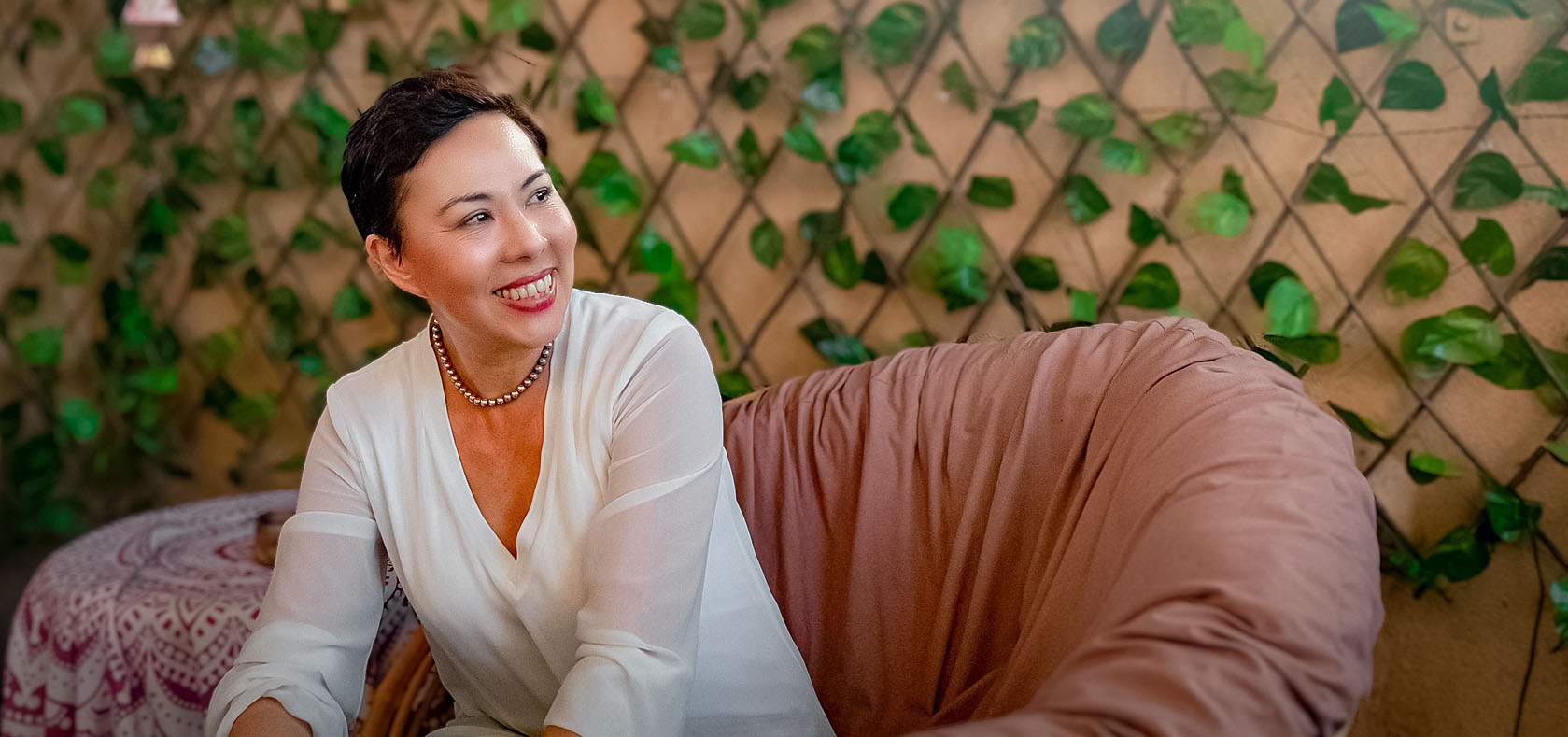
Since the 1970s, the Philippines has been one of the world’s leading exporters of labour – a trend that began when the country faced an economic downturn and political instability amid a global economic recession. Today, 10 per cent of Filipinos live abroad, and more than 60 per cent of them are women doing basic jobs in services and domestic work and cleaning. Remittances from workers abroad are a major part of the economy, accounting for 10 per cent of gross domestic product (GDP) in the Philippines.
Yet, labour migration comes at a high cost to women and families. Back home in the Philippines, a “parentless generation” of children rarely see their parents but feel their presence with every paycheck sent home. Gina remembers being the lone child in their community of Filipina ‘aunties’ who had moved abroad, mothers who had left their children behind and remained separated for years on end.
Through Connected Women, Gina is expanding employment opportunities for low-income Filipina women as an alternative to labour migration. Connected Women assists them by providing online skills development and remote work opportunities while giving business clients access to a reliable, trained technology workforce. Gina often jokingly describes herself as a failed entrepreneur, “not because I am proud of my mistakes but because I value failure as a catalyst for success.” Her unique life path gave her diverse skills suited to leading Connected Women and informing her vision of the impact she hopes to have.
The beginning
Gina was born and raised in the United Kingdom, where her mother was a domestic worker. After nearly two decades of saving and sending money home, Gina’s parents realized their dream of returning to the Philippines to run their own pig farm.

However, tragedy struck when Mount Pinatubo erupted in 1991, destroying the farm. In need of income, her family departed for the United Kingdom. By then, Gina was 17, and she began working and sending money back to the Philippines, just like her parents. She eventually landed a job as a flight attendant – a position she held for ten years.
During the job interview, she was asked if she had ever been in an emergency. “It [the eruption of Mount Pinatubo] got me the job,” Gina said, grinning.
The road to somewhere
Like her parents, Gina dreamed of starting a business of her own. During a layover in New York in 2001, Gina witnessed the deployment of WiFi in a café. Certain that this was a big opportunity, she convinced her partner, Bobby, who worked in the technology sector, to help her to set up a WiFi router in a friend’s building. The building’s management was quickly convinced of its potential. “The connection reached the entire building, and a business was born,” Gina recalled.
Without investment, however, the business struggled. “If I want to send an email, I go to my desk. Why would I need WiFi?” one loan officer questioned as he declined her application.
Eventually, Gina’s startup caught the attention of the Athena Network, which brings women entrepreneurs together in a community that provides mentorship and guidance.
Jacqueline Rogers, founder of the Athena Network, recalls her first meeting with Gina. “She had such a niche skill to offer – 10 years ago, women needed to learn about information technologies and Gina was equipped to teach them,” she added. Through the Athena Network, Gina connected with like-minded entrepreneurs. Her connection to the Athena Network deepened over time.
In 2012, Gina, Bobby and their children moved to Singapore, where Gina launched a new chapter of the Athena Network, the first of its kind in the country.
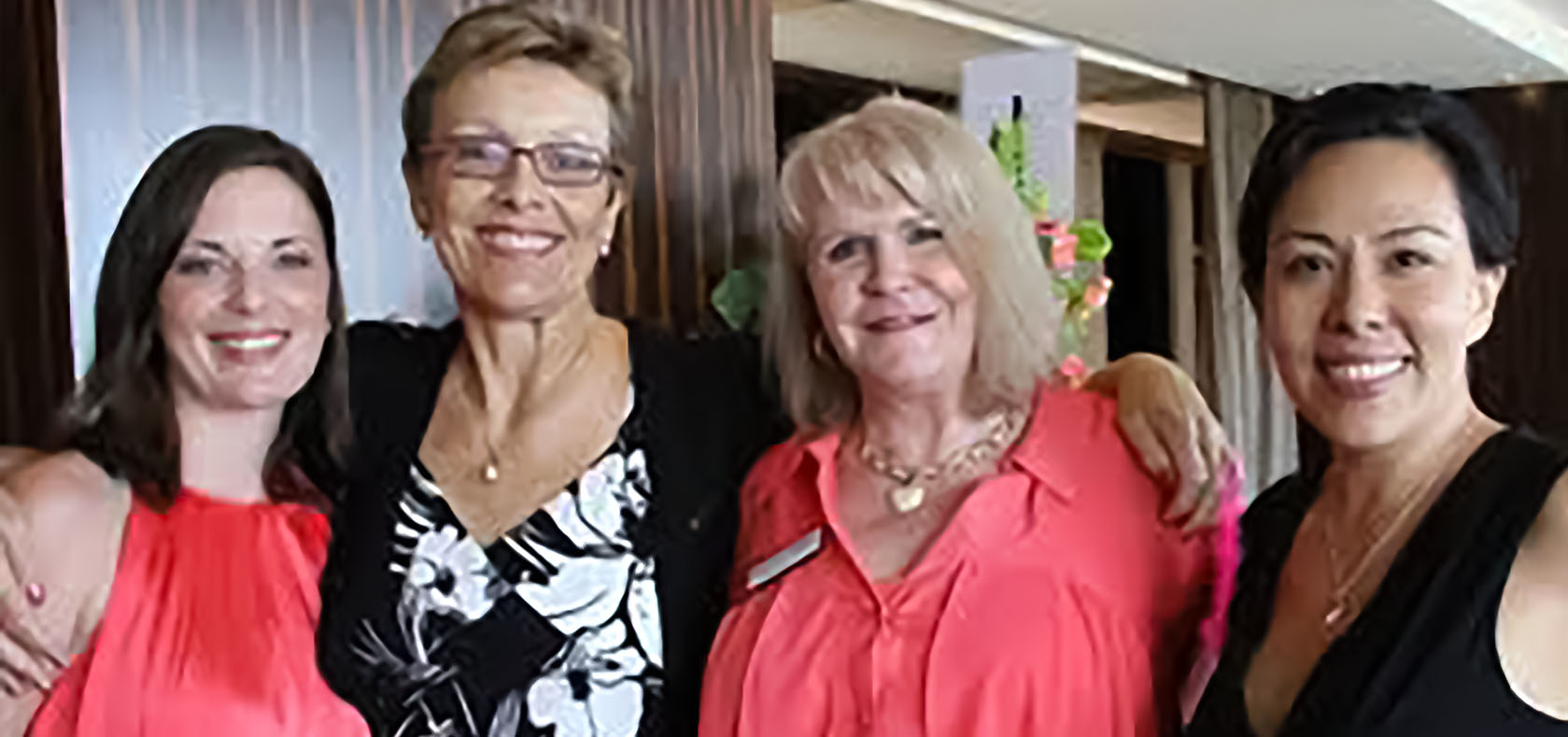
Homecoming
While settling into her life in Singapore, Gina needed to hire a nanny for her sons and began interviewing prospective candidates. One candidate, Beth, was a Filipina domestic worker and widow who had not seen her children in eight years. Beth’s family, like Gina’s decades before, had been forced apart by the search for economic opportunity. Gina became keenly aware that women, especially Filipina women from a low socioeconomic background, needed better opportunities to earn an income and care for their families. Gina decided to move her family back to the Philippines to tackle the root of the problem that was forcing Filipina women to work overseas.
Gina set out to build a job-matching platform for women in the Philippines, but she could not do it alone. Soon, she met Ruth Yu-Owen, who would eventually become the co-founder of Connected Women. Ruth ran a successful renewable energy company and was a catalyst in connecting Gina to the women she wanted to help, bringing in partners and potential investors. Given her background in international shipping, a field dominated by men, Ruth had experienced unconscious gender biases throughout her career. “I’m driven by so much passion to make it work for [women]…it’s very personal for us,” Ruth adds as she reflects on her journey with Connected Women.
Gina and Ruth spent the next two years developing the first version of the platform. At first, it seemed to be working: Filipinas were using their platform and finding jobs. But Gina soon realized that the women winning the jobs were highly educated and would have found a job without her support. Meanwhile, the women Gina hoped to help – lower-income women – were not competitive. They needed upskilling to compete for remote work.
To meet this need, Gina and Ruth created a blended learning course just as the COVID-19 pandemic began forcing businesses and schools to close their doors. Gina and Ruth jumped at the opportunity to test their new course. Women from low-income groups and women displaced by the pandemic were the first to complete the upskilling course.
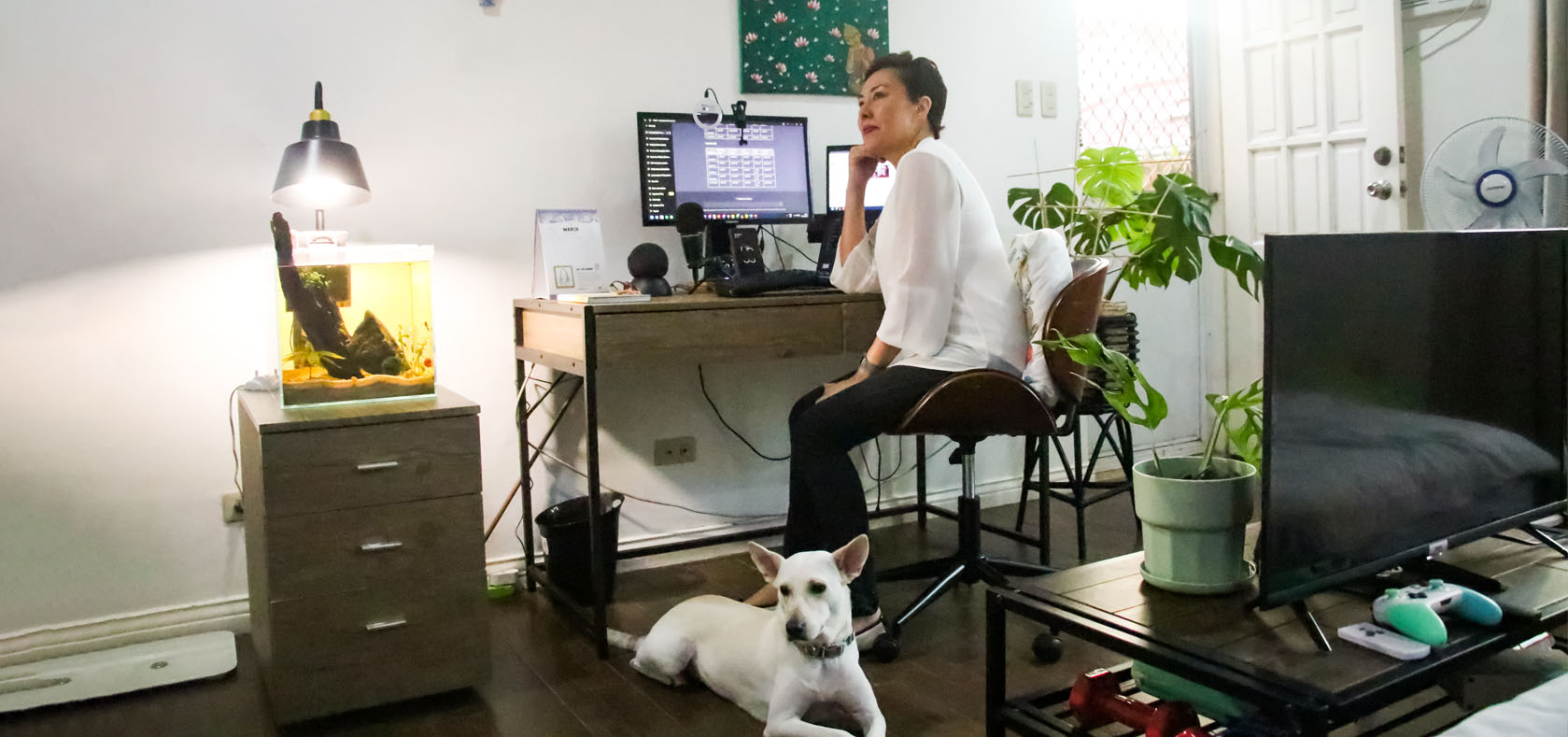
Connected Women’s online training for data labelling for AI and machine learning, virtual assistants and more were launched under a pilot programme called Elevate AIDA (Artificial Intelligence Data Annotation), funded by UN Women and the European Union WeEmpowerAsia (WEA) programme. After completing the training, participants were recruited to jobs with flexible hours and wages of approximately PHP 500 per day, depending on their output. The training participants preferred the working conditions and pay to what was available in the informal economy where there are few decent jobs.
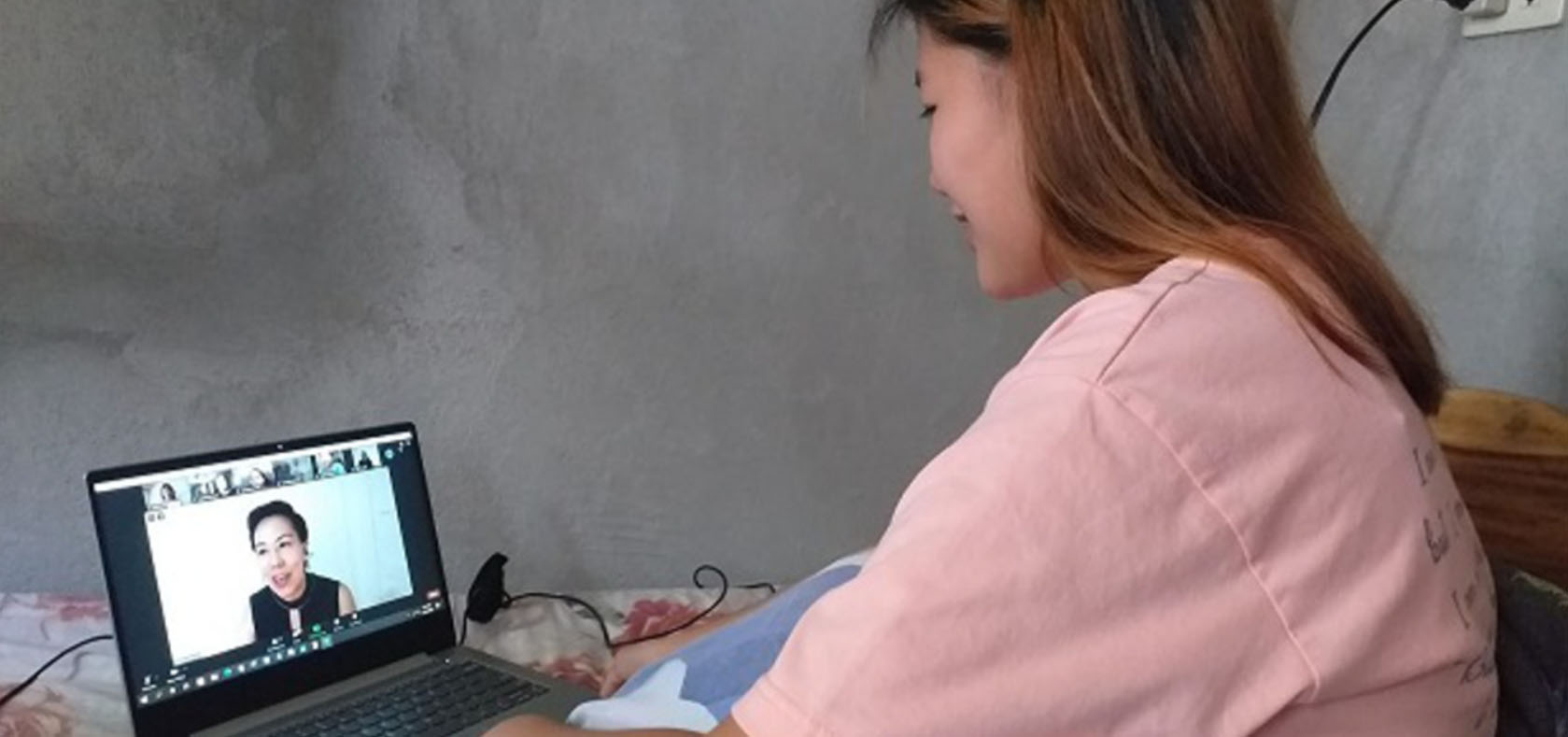
Connected Women has cultivated private sector partnerships in the Philippines. In need of labour and outsourcing, these partners turn to the Connected Women community of over 100,000 workers (as of March 2023) in the Philippines, but also in other countries, including Pakistan, Singapore, Saudi Arabia, and Viet Nam.
With her experience in the service industry and managing communities within the Athena Network, Gina has what it takes to lead Connected Women as it continues to grow.
Looking back at the journey so far, Gina notes that “community, entrepreneurship and technology have been at the heart of everything I do,” While the road has been anything but linear, Gina is making a difference. Sitting beside her mother in their home in the Philippines, Gina smiles and says, “We can finally bring the jobs here.”
Gina Romero and her mother, Raymunda, in their home in the Philippines.
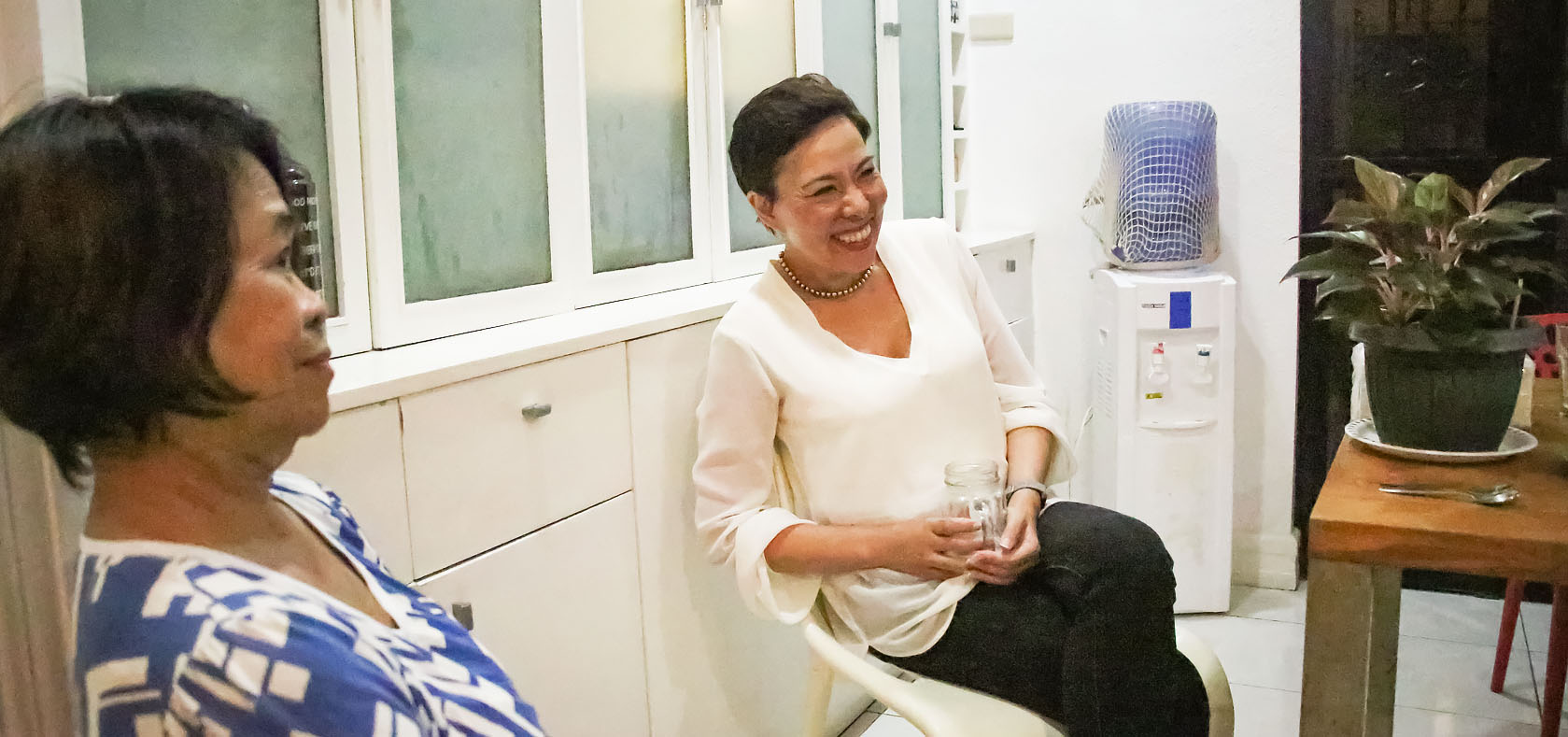
This story was funded in part by the Government of Australia through the WE RISE Together programme implemented by UN Women